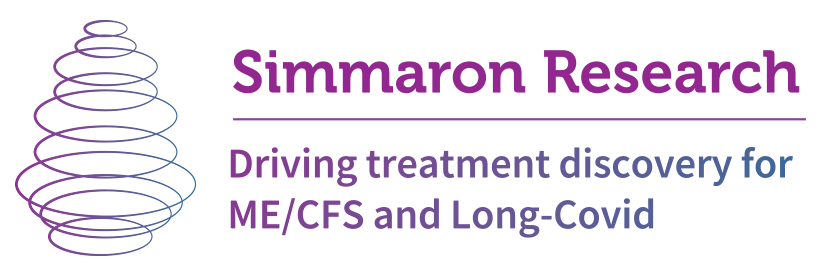"The Subset Maker": Lipkin Chronic Fatigue Syndrome Study Highlights Energy Issues In Gut Subset
Looking for clues to the cause of chronic fatigue syndrome (ME/CFS), Ian Lipkin has, over the years, poked his fingers into a number of different areas. His 2012 XMRV study showed that the virus was not infecting people with ME/CFS. (It was a contaminant). His pathogen studies (unpublished) found no evidence of a viral infection in ME/CFS.
Subsets
Lipkin may have uncovered more potential subsets than any other researcher and has long emphasized the need to break ME/CFS up into its constituent parts. Lipkin and Mady Hornig's 2015 cytokine study which found the immune system going gangbusters early in ME/CFS but then pooping out, exhausted, later identified two possible subsets (early and long duration patients.) Lipkin then teamed with the Simmaron Research Institute to document similar findings in chronic fatigue syndrome (ME/CFS) patients’ spinal fluid. Dr. Peterson, Lipkin and the Simmaron Research Institute then uncovered an atypical ME/CFS subset (the "Peterson subset".)In an email Lipkin emphasized the critical need to identify the subsets he believes must be present in this disease.
Lipkin and Mady Hornig's 2015 cytokine study which found the immune system going gangbusters early in ME/CFS but then pooping out, exhausted, later identified two possible subsets (early and long duration patients.) Lipkin then teamed with the Simmaron Research Institute to document similar findings in chronic fatigue syndrome (ME/CFS) patients’ spinal fluid. Dr. Peterson, Lipkin and the Simmaron Research Institute then uncovered an atypical ME/CFS subset (the "Peterson subset".)In an email Lipkin emphasized the critical need to identify the subsets he believes must be present in this disease.
ME/CFS is not a single disorder and is unlikely to have single cause or a single treatment. As we learn more about ME/CFS, we are beginning to define subtypes. This is critical to understanding how people become ill and developing practical solutions for management. The challenge is not unique to ME/CFS. It is representative of the Precision Medicine initiative that is sweeping clinical medicine and public health. Just as there is no one cause or cure for all cancers, all forms of heart disease, or all infections, there will be more than one path to ME/CFS and more than one treatment strategy.
Over the past couple of years Lipkin - who has been intensely interested in the role that gut bacteria plays in this illness - has been digging into an ME/CFS plus irritable bowel subset. We've learned in the past ten years just how influential the gut is. Gut bacteria and the metabolites they produce don't stop at the gut. If they leak out of the gut they can directly affect the immune and central nervous system functioning. Some of the metabolites showing up in ME/CFS metabolomic studies originate in the gut.Last year Lipkin’s group published the most comprehensive gut bacteria study in ME/CFS yet done, which incorporated immune and clinical findings. This year he repeated the gut bacterial analysis and added metabolomics and clinical findings to the mix. The man clearly likes large, complex studies.
The 2017 Gut Study
The large 2017 Nagy-Szakal/Lipkin gut study was notable for it's size (n=100) and it's breadth - it included patients from no less than six ME/CFS practitioners including Dr. Peterson. It found, amongst other things, increased levels of bacteria from a family (Clostridiaceae) known for its abundance of toxic and disease causing bacteria.One of the few gut studies that's actually been able to identify individual bacterial species, the study found increased abundances of several bacterial species (Faecalibacterium & Coprococcus spp.) that have been associated in other studies with IBS-like symptoms, including colonic pain, bloating, and GI discomfort.Using a type of data analysis called topological data analysis (TDA) which is able to incorporate metagenomic, metabolic pathway, immune and clinical data, the Lipkin group found that the presence of irritable bowel syndrome (IBS) was having a major effect on disease severity, gut microbiota, and immune profiles.That finding led the Lipkin group to split the ME/CFS patient cohort into ME/CFS with IBS and ME/CFS without IBS subsets and examine the differences in microbiota (gut bacteria). The results were astonishing. A dissimilarity measure found that gut bacteria differed as much between the ME/CFS + IBS patients and the ME/CFS - IBS patients as between the ME/CFS group as a whole and the healthy controls. That analysis suggested that the guts of the ME/CFS patients with and without IBS featured significantly different bacteria.The cytokine data in the study did not add to the analysis but the microbiome analysis revealed a number of interesting possibilities,Metabolic pathway analyses revealed the ME/CFS + IBS and the ME/CFS - IBS groups differed in some important ways. Both groups featured enriched metabolic pathways that produced Vit. B6, but an important part of the energy production process (the pyrimidine ribonucleoside degradation pathway) was enriched in the ME/CFS only group. That same pathway was hit hard in the ME/CFS plus IBS group.Plus, the abnormalities found in the urea cycle, which is closely linked to aerobic energy production (Krebs or TCA cycle) occurred mostly in the ME/CFS + IBS group.The data suggested that people with ME/CFS and IBS group had different bacterial gut makeups and might have more problems with energy production than people with ME/CFS, and it set the stage for Lipkin's next effort.
The results were astonishing. A dissimilarity measure found that gut bacteria differed as much between the ME/CFS + IBS patients and the ME/CFS - IBS patients as between the ME/CFS group as a whole and the healthy controls. That analysis suggested that the guts of the ME/CFS patients with and without IBS featured significantly different bacteria.The cytokine data in the study did not add to the analysis but the microbiome analysis revealed a number of interesting possibilities,Metabolic pathway analyses revealed the ME/CFS + IBS and the ME/CFS - IBS groups differed in some important ways. Both groups featured enriched metabolic pathways that produced Vit. B6, but an important part of the energy production process (the pyrimidine ribonucleoside degradation pathway) was enriched in the ME/CFS only group. That same pathway was hit hard in the ME/CFS plus IBS group.Plus, the abnormalities found in the urea cycle, which is closely linked to aerobic energy production (Krebs or TCA cycle) occurred mostly in the ME/CFS + IBS group.The data suggested that people with ME/CFS and IBS group had different bacterial gut makeups and might have more problems with energy production than people with ME/CFS, and it set the stage for Lipkin's next effort.
The 2018 Gut and Metabolomics Study
Sci Rep. 2018 Jul 3;8(1):10056. doi: 10.1038/s41598-018-28477-9.Insights into myalgic encephalomyelitis/chronic fatigue syndrome phenotypes through comprehensive metabolomics. Nagy-Szakal D1, Barupal DK2, Lee B1, Che X1, Williams BL1, Kahn EJR1, Ukaigwe JE1, Bateman L3, Klimas NG4,5, Komaroff AL6, Levine S7, Montoya JG8, Peterson DL9, Levin B10, Hornig M1, Fiehn O11, Lipkin WI12.
After striking that rich vein, the Lipkin group expanded their research effort - incorporating metabolomics for the first time into their studies. (Lipkin and the Simmaron Research Foundation are also currently engaged in the first metabolomics spinal fluid study.) Once again incorporating a wide variety of doctors from different locations (Peterson, Bateman, Klimas, Levine, Montoya) and using a fairly large sample set (n=100) Nagy-Szakal/Lipkin, the Lipkin group fused together blood metabolomic, fecal bacterial metagenomic, and clinical data to paint a new picture of ME/CFS.The study represented the first attempt to meld two potentially important fields in ME/CFS - metabolomics and gut microbiome findings- together. Lipkin and Hornig have proposed that the gut issues play an important role in ME/CFS, and several studies have found evidence of dysbiosis (pro-inflammatory gut bacteria) in ME/CFS. Unutmaz is chasing down a T-cell gut connection, and past studies have suggested that bacterial leakage from the gut could help explain at least some of the post-exertional malaise present.Given the group's past gut findings - that significant differences in gut bacteria, immune profiles and possibly energy production exist between ME/CFS + IBS patients and ME/CFS patients without IBS, it made sense for the Lipkin group to once again split the ME/CFS group into subsets with and without IBS and analyze the heck out of them.
Study Results
Energy Production Problems Highlighted
The study confirmed past general findings of decreased levels of phospholipids and sphingomyelins - two important findings by Naviaux- and increased levels of triglycerides (TG's). (Triglycerides have been associated with metabolic problems and hypothyroidism.)That both the ME/CFS + IBS group and the ME/CFS without IBS group had reduced levels of metabolites associated with the choline-carnitine energy pathway suggested that both groups had similar core metabolic problems. (Carnitine participates in the TCA cycle, ATP production and energy metabolism).
More Was Better
The Lipkin group's decision to integrate metabolomics, microbiome and clinical data worked. Not only did incorporating all this data together illuminate a possibly important subset - the ME/CFS IBS subset - but it also allowed the group to better differentiate ME/CFS patients from controls. It suggested that studies which combine multisystemic data together will do a better job in describing this multisystemic disease.As with the 2017 study, having or not having IBS was the biggest driver in determining the kind of bacterial profile (and bacterial metabolic pathways) present. This time the study found that the metabolomics of the ME/CFS + IBS group were significantly different from the ME/CFS only group as well. That suggested these two subsets of ME/CFS patients might be quite different indeed.In contrast to Naviaux, the study did not find a "consistent decrease" in ceramide metabolites - the most commonly disrupted metabolite Naviaux found in his ME/CFS group. When Lipkin controlled for IBS, he found increased levels of ceramides in the ME/CFS plus IBS group but decreased levels of ceramides in the ME/CFS only group. That suggested that key metabolites in ME/CFS might be different in these two ME/CFS subsets.https://www.healthrising.org/blog/2016/09/01/metabolomics-naviaux-chronic-fatigue-syndrome-core-problem/Bacterial Toxins HighlightedNagy/Lipkin suggested that increased levels of bacterial toxins (IBS connection) in ME/CFS may be triggering an enzyme called sphingomyelinase to produce the ceramides which then may damage the gut lining and possibly interfere with energy production. Ceramides are waxy fats that figure in a number of processes that may be important in ME/CFS. Not only can they produce many free radicals (reactive oxygen species) that can damage the gut lining (the IBS connection), they can also interfere with electron transport (the energy connection) as well as contribute to insulin and leptin resistance (metabolism issues).The authors also proposed that the higher mannitol levels found in the ME/CFS could reflect the breakdown of two important barriers in the body: the gut barrier and the blood-brain barrier.Several studies suggest a breach in the gut barrier could be contributing to systemic inflammation in ME/CFS, and one suggests that exercise may further widen that breach. Several researchers, including Jarred Younger and Avindra Nath, have also postulated that the suspected neuroinflammation in ME/CFS results from immune cells entering the brain through a weakened blood-brain barrier.The Gut Shines in Distinguishing ME/CFS Patients From Healthy ControlsInterestingly, for all the focus on metabolomics, a network analysis using differences in gut bacterial abundance was better able to distinguish ME/CFS patients from healthy controls than did metabolomic results.That suggested that gut bacterial differences may be more prominent than metabolomics differences in ME/CFS patients. That was a surprise, and we'll see how this all turns out. It stands to reason that the closer we get to the core of the problem, the more striking the differences we'll see between healthy people and people with ME/CFS. (Will the gut play a bigger role than we thought?)Possible Treatment OptionsThe group suggested that their findings, if validated, could present some possible treatment options. They included using SMAse blockers to reduce ceramide levels and giving carnitine supplementation to increase the low levels of metabolites in the choline-carnitine pathway. One open-label study found that carnitine supplementation helped over half of ME/CFS patients.Given the unrevealing cytokine data from Lipkin's cytokine data and his recent turn to metabolomics I asked Lipkin how important a role cytokines were likely to play in future ME/CFS research and treatment. Lipkin felt they may yet play an important role in ME/CFS indeed:
Ceramides are waxy fats that figure in a number of processes that may be important in ME/CFS. Not only can they produce many free radicals (reactive oxygen species) that can damage the gut lining (the IBS connection), they can also interfere with electron transport (the energy connection) as well as contribute to insulin and leptin resistance (metabolism issues).The authors also proposed that the higher mannitol levels found in the ME/CFS could reflect the breakdown of two important barriers in the body: the gut barrier and the blood-brain barrier.Several studies suggest a breach in the gut barrier could be contributing to systemic inflammation in ME/CFS, and one suggests that exercise may further widen that breach. Several researchers, including Jarred Younger and Avindra Nath, have also postulated that the suspected neuroinflammation in ME/CFS results from immune cells entering the brain through a weakened blood-brain barrier.The Gut Shines in Distinguishing ME/CFS Patients From Healthy ControlsInterestingly, for all the focus on metabolomics, a network analysis using differences in gut bacterial abundance was better able to distinguish ME/CFS patients from healthy controls than did metabolomic results.That suggested that gut bacterial differences may be more prominent than metabolomics differences in ME/CFS patients. That was a surprise, and we'll see how this all turns out. It stands to reason that the closer we get to the core of the problem, the more striking the differences we'll see between healthy people and people with ME/CFS. (Will the gut play a bigger role than we thought?)Possible Treatment OptionsThe group suggested that their findings, if validated, could present some possible treatment options. They included using SMAse blockers to reduce ceramide levels and giving carnitine supplementation to increase the low levels of metabolites in the choline-carnitine pathway. One open-label study found that carnitine supplementation helped over half of ME/CFS patients.Given the unrevealing cytokine data from Lipkin's cytokine data and his recent turn to metabolomics I asked Lipkin how important a role cytokines were likely to play in future ME/CFS research and treatment. Lipkin felt they may yet play an important role in ME/CFS indeed:
"Cytokine disturbances can result in fatigue, cognitive and other disturbances. The observation that other biomarkers such as metagenomic or metabolomic profiles are highly associated with disease does not diminish their (cytokines) importance. There may be people who would benefit from drugs, including antibody therapies, that modulate cytokine responses."
Scheibenbogen is pursuing antibody therapies in ME/CFS, and Nancy Klimas is reportedly using Enbrel (etanercept) - a cytokine (TNF) blocker - plus mifepristone in her Gulf War Illness trial. Other biologics are available and more are coming on the market. Recent findings in POTS suggest that antibody drugs will probably play an important role in that disease as well.Since the study also found that taking Vit. B supplements was associated with higher levels of pantothenic acid and lower fatigue scores, taking Vit. B supplements may be a good idea.The 5-MT QuestionDecreased levels of 5-MT, a metabolite associated with tryptophan, serotonin and melatonin metabolism could reflect problems with serotonin/melatonin conversion. This finding, however, was confounded by the high use of antidepressants (50% of the ME/CFS group) which could have produced the decrease.Correlation studies do suggest, though, that low 5-MT levels could contribute to problems with cognition, sleep and fatigue. Larger studies are needed to determine if the low 5-MT levels are associated with those symptoms in ME/CFS - and if they are - if it might be beneficial to modulate that pathway using drugs in ME/CFS.
Next Up for the Simmaron Research Foundation and Ian Lipkin
The next phase in the Simmaron Research Foundation's ongoing collaboration with Ian Lipkin is an expanded study which will, for the first time in ME/CFS, analyze the metabolomics of ME/CFS patients cerebral spinal fluid. The study, which will also include immune analyses is the third Simmaron/Lipkin CSF study to date. The first two studies found dramatic evidence of immune activation and the presence of a potential new subset.http://simmaronresearch.com/2015/04/spinal-fluid-study-finds-dramatic-differences-chronic-fatigue-syndrome/Lipkin also reported rapid progress from his new NIH research center and a new collaborative effort with ME/CFS researcher and NIH ME/CFS research center leader Derya Unutmaz. The idea of two top labs in the country collaborating in a complementary fashion is an exciting one - one we will hopefully see much more of in this field.
We are completing analysis of saliva, blood, and feces for bacteria, viruses and fungi from ME/CFS and control subjects using powerful new sequencing methods. This will be the largest and most comprehensive study to date on the microbiome in ME/CFS. We will soon begin metabolomic, proteomic, and transcriptomic analyses of ME/CFS and control subjects before and after exercise. We are deeply grateful to the patients who are contributing to this work despite the implications for their health. They are true heroes.We have begun a new collaboration with Derya Unutmaz and Jackson Laboratories that builds on the complementary expertise of our teams in cellular immunology and molecular microbiology and biochemistry.Dana March and Tony Komaroff are building an app to help ME/CFS subjects and their caregivers track their status. We have had great support in this effort from people in the community.
Conclusions
In the past three years Lipkin's identified three potential subsets (early/late duration patients, the "Peterson subset", ME/CFS + IBS subset) and his explorations into the ME/CFS IBS subset continues to reap dividends. His metabolomic study found signs of energy production problems in all ME/CFS patients, but when Lipkin separated out the ME/CFS + IBS patients, he found altered, even at times opposite metabolic findings that could suggest a different source of fatigue was present in the ME/CFS + IBS patients. His earlier study suggested more severe energy production problems may be present in ME/CFS patients with IBS.The importance of the gut bacteria in ME/CFS perhaps rose to a new level of significance when a network analysis found larger differences in gut bacteria than metabolites. Lipkin's ability to better differentiate ME/CFS patients from healthy controls using gut bacteria, metabolomic and clinical data suggests that large studies which tie together multiple systems will be the most helpful.In short, the latest study from the Lipkin group indicates that the gut does matter in ME/CFS and that in those with gut problems it may matter more than we think.The Simmaron Research Foundation and Lipkin are employing metabolomics in the study of cerebral spinal fluid for the first time, and Lipkin has launched a new collaborative ME/CFS effort with fellow NIH ME/CFS Research Center leader Derya Unutmaz.
His metabolomic study found signs of energy production problems in all ME/CFS patients, but when Lipkin separated out the ME/CFS + IBS patients, he found altered, even at times opposite metabolic findings that could suggest a different source of fatigue was present in the ME/CFS + IBS patients. His earlier study suggested more severe energy production problems may be present in ME/CFS patients with IBS.The importance of the gut bacteria in ME/CFS perhaps rose to a new level of significance when a network analysis found larger differences in gut bacteria than metabolites. Lipkin's ability to better differentiate ME/CFS patients from healthy controls using gut bacteria, metabolomic and clinical data suggests that large studies which tie together multiple systems will be the most helpful.In short, the latest study from the Lipkin group indicates that the gut does matter in ME/CFS and that in those with gut problems it may matter more than we think.The Simmaron Research Foundation and Lipkin are employing metabolomics in the study of cerebral spinal fluid for the first time, and Lipkin has launched a new collaborative ME/CFS effort with fellow NIH ME/CFS Research Center leader Derya Unutmaz. 
